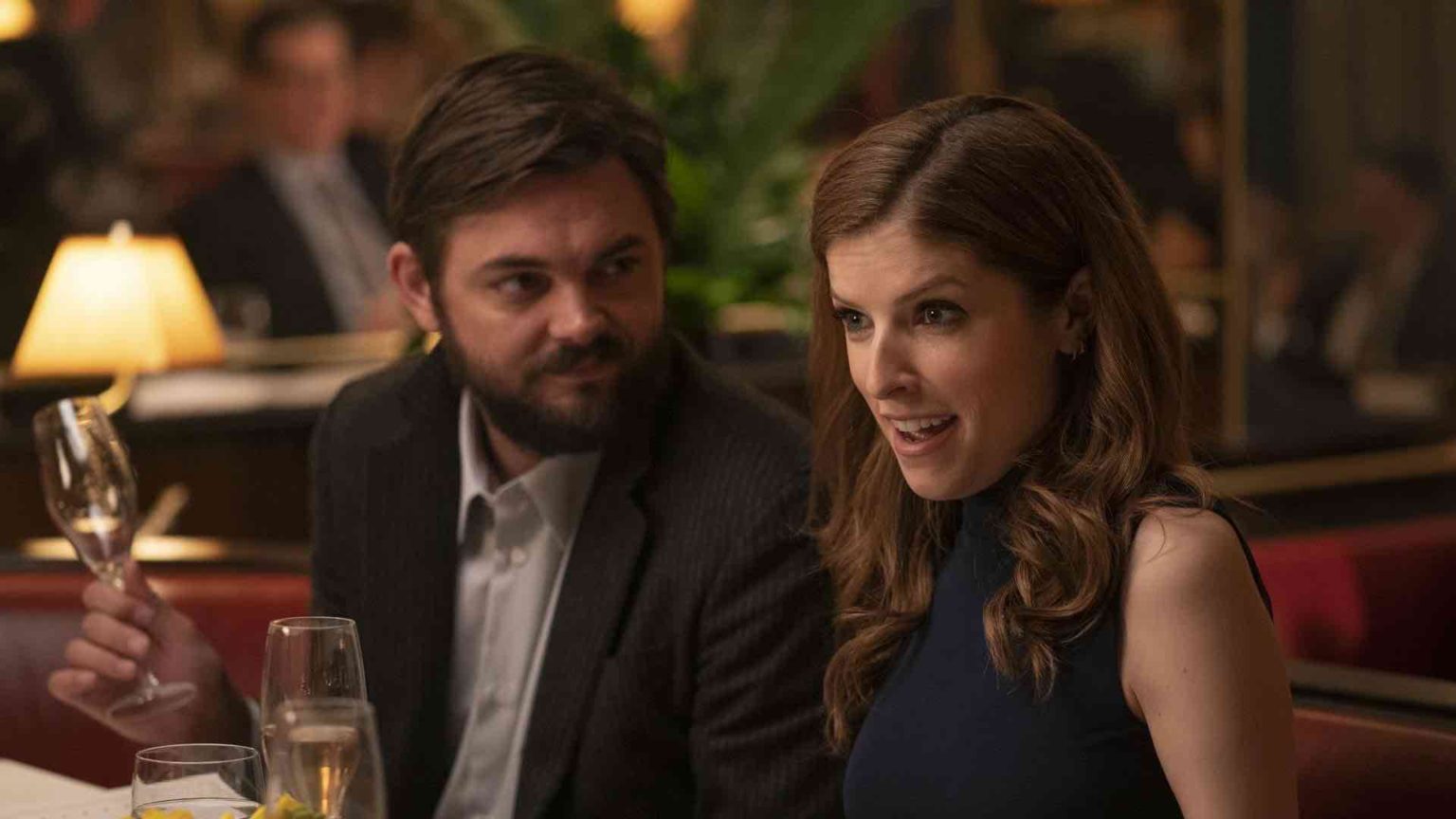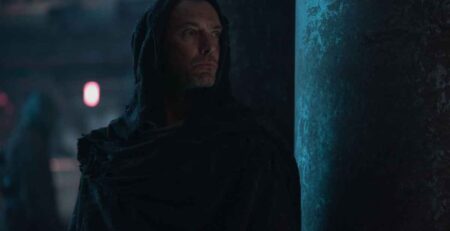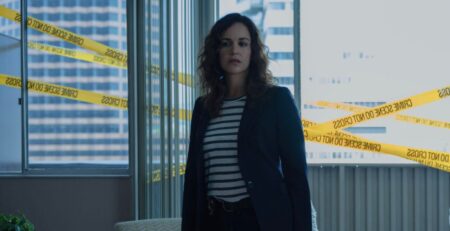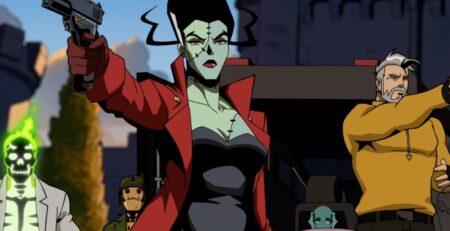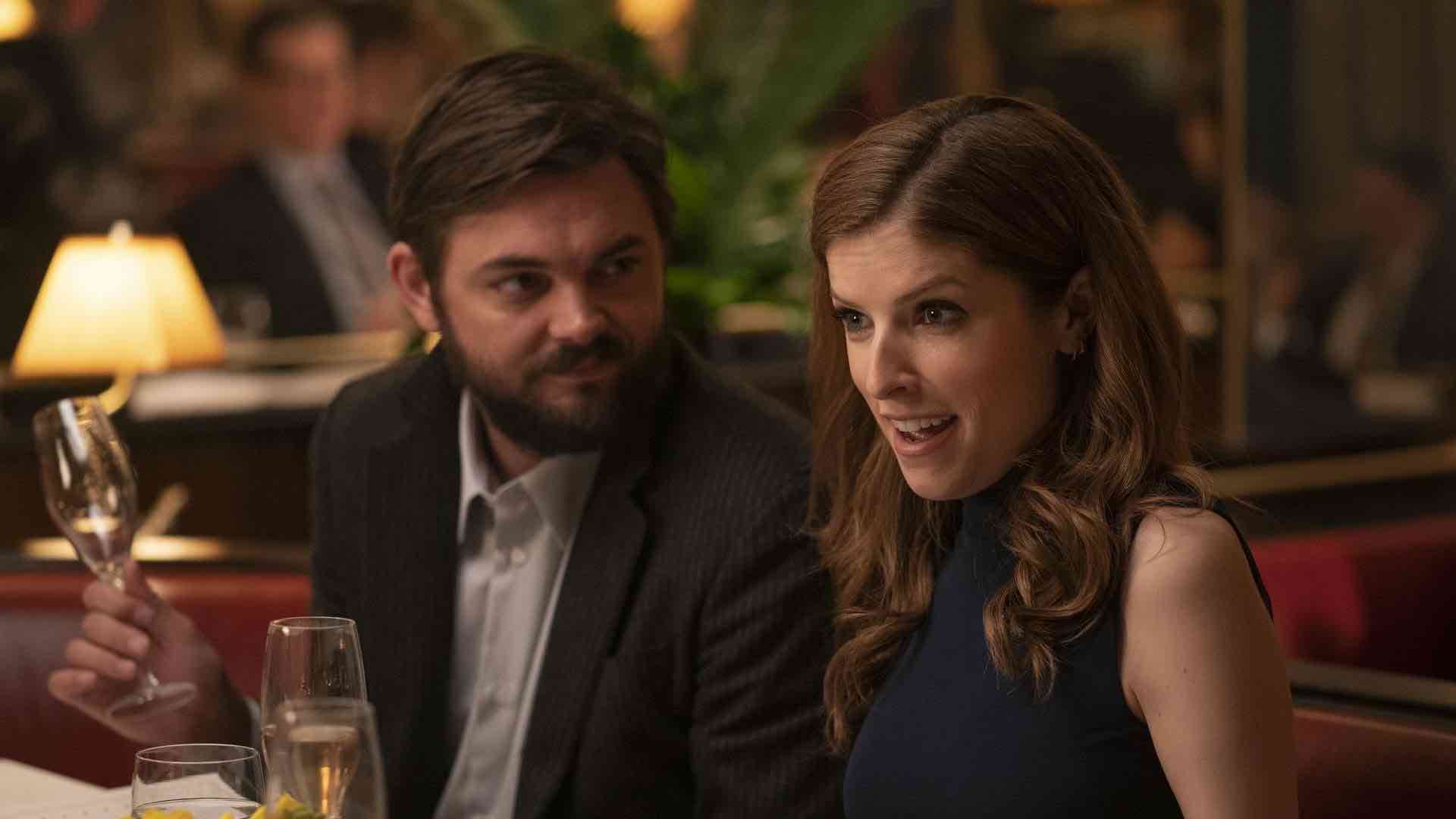
After watching Love Life Episodes 4-6, I am no longer convinced the show is meant to be a romantic comedy. One of HBO Max’s original offerings, the middle portion of this short series by Sam Boyd starring Anna Kendrick feels more like a classical tragedy than anything. At first, the grating machismo and subtle manipulation of Magnus Lund (Nick Thune) was almost enough to make continuing the show unbearable. That is until his self-absorbed and borderline emotionally abusive nature clearly became part of a deeper point Love Life is making about relationships and self-worth.
Love Life Episodes 4-6 make up a larger story arc centered around Darby’s (Anna Kendrick) relationships with Magnus and high school fling Luke Ducharme (Griffen Gluck, John Gallagher Jr.). Episodes 4 and 6, “Magnus Lund” and “Magnus Lund Part II” take place in two separate years of their relationship while the episode in between, “Luke Ducharme” is a frame story where Darby unpacks the trauma of her first high school relationship to a therapist and viewers watch it as a flashback. As an aside, that episode has really bad sound mixing during an outdoor scene where the sound of bugs overpowers the volume of everything else. Luke reemerges in Darby’s life in Episode 6 and, in a way, helps her understand how terrible Magnus is as a person and for her and how it’s okay for her to divorce him.
Magnus is unbearable, but not in the way bad boyfriends typically are in romantic comedies. He isn’t framed from the beginning as the sexist, self-absorbed jerk who is clearly meant to play foil to the boy the girls will get with in the end. His chauvinism is slightly more subtle and with no alternative love interest to play against, his constantly making things about himself and showing little interest in anything to do with Darby’s life or their friends and roommates is not entirely obvious at first. But, as Love Life Episodes 4-6 carry on, Darby’s bad relationship stops being funny or charming. It becomes outright depressing.
The aesthetic and scenarios of Love Story are trite and very white. There are still no prominent roles played by people of color in Episodes 4-6 and the two roles there are either are an antagonist or a friend whose advice is never taken. The jobs characters have and the settings they find themselves in are very posh and polished. But underneath that veneer is a harrowingly affecting illustration of what so many love lives actually look like.

The reality is that social pressures from the way our parents treat each other to the relationships around us to what we watch on TV shape our conception of what love should look like, whether it is a healthy conception or not. Darby’s parents not only divorced when she was young and went on to have several other children each with new partners but they also generally treat her terribly as Episodes 4-6 show. Her first relationship with Luke ended in him ignoring she existed and then eventually basically cheating on her with her boarding school roommate. Her best friend Sara (Zoë Chao) and her longtime boyfriend Jim (Peter Vack) are two of her roommates. Every influence in her life is begging for her to be in a longterm and deeply committed relationship.
It’s why she is so susceptible to falling into relationships unworthy of her. And it is what makes Love Life more than just a rom-com. It’s not just about a girl looking for love in the Big City. And it’s not just a show about a girl learning to love herself instead of looking for approval in others. The show’s first episode shows Darby pregnant in the end. While there is no way to tell what kind of relationship if any she is in at that point or where she is at in her personal growth, she certainly did not look happy in that brief scene. Darby’s trajectory and Love Lifie‘s adherence to a realistic depiction of the psychology of love lives left me wondering whether, in the end, anybody is going to actually be happy.
Darby shows no signs of recognizing her unhealthy relationship with relationships as she cheats on Magnus with Luke, who, again, cheated on her ten years prior and doesn’t seem like too much less of a crummy person than he did as a 15-year old. You certainly can’t blame Darby though when she has no real support system outside of Sara, who gives terrible advice, and the therapist she sees in “Luke Ducharme,” is horrible. Meanwhile, Sara and Jim’s relationship is spiraling too. Not that they have become any more interesting in these episodes, but the fact that I find myself pulling for them to come through more than any of Darby’s relationships is a testament to the engrained romantic ideal, unshakable even when its fallacy is poignantly on display right in front of your face.
Love Life Episodes 4-6 prove in the show’s sophomore arc that there is much more to the show than just a trite rom-com love story. Underpinning the ups and downs of day-to-day romantic life is a commentary on the origins of our ideations of love and the deleterious effect that can have on our lives and relationships. So many of us are like Darby, shaped by the traumas and jealousies of our experiences, pining for something with another human being that doesn’t exist in real life. We’re as much in the lurches as Darby is by the end of Episode 6 and with the final four episodes premiering together, I hope Love Life sticks the landing not because I care about Darby or Sara or any of the show’s characters.
I just want to know what blueprint for a better love life the show might offer. Which, ultimately, is what romantic comedies are really all about, isn’t it?
Love Life is streaming now exclusively on HBO Max. The final four episodes will air on Thursday, June 11.
Love Life Episodes 4-6
-
Rating - 7/107/10
TL;DR
Love Life Episodes 4-6 prove in the show’s sophomore arc that there is much more to the show than just a trite rom-com love story. Underpinning the ups and downs of day-to-day romantic life is a commentary on the origins of our ideations of love and the deleterious effect that can have on our lives and relationships. So many of us are like Darby, shaped by the traumas and jealousies of our experiences, pining for something with another human being that doesn’t exist in real life.

